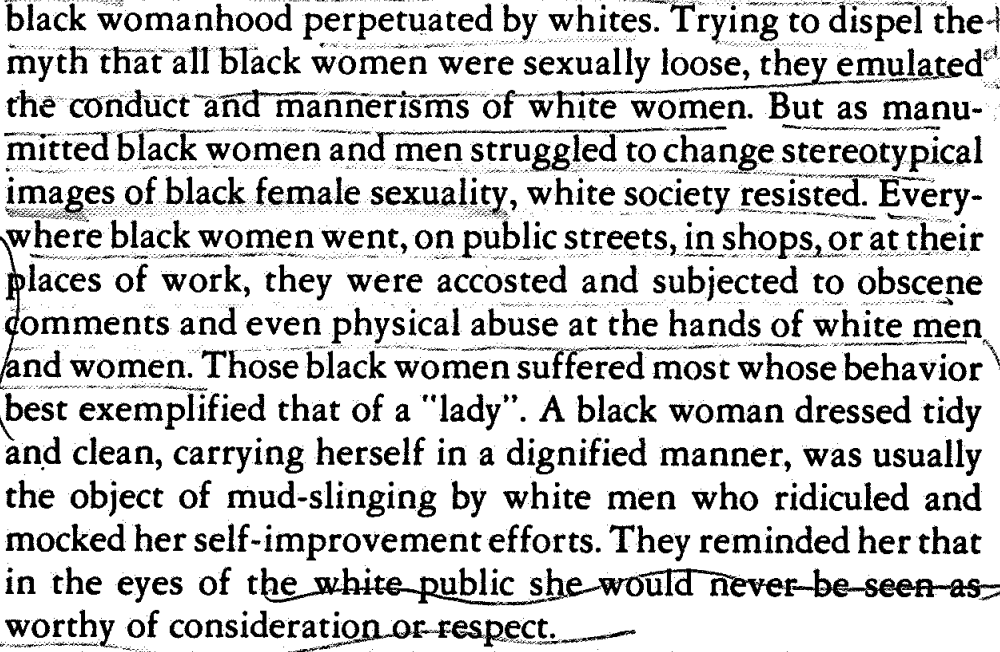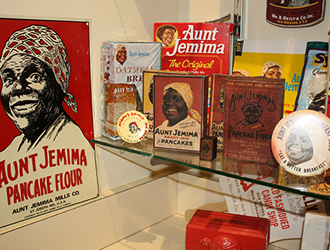"One is not born, but rather becomes a woman" - Simone de Beauvoir, The Second Sex
What is it for a Black girl to see herself in a mirror for the first time? A Black woman? What preconceived notions of womanhood does an infant conceive of? Is mother already supplanted into the conscious as the ideal I? Lacan speaks of a moment of creation in the mirror stage in which not only is there a moment of self-recognition, but an idealized version of the self is created, the "Ideal-I", for which the self ever attains towards but falls short of. This idealized version of the self is based upon societal norms, those of gender, race, weight, and other intersectional factors of existence. Seemingly internal factors of existence are made external as we are defined through our interactions with others. For those socialized as Black women, the term girl is loaded or imbued with power, and is hence a multifaceted organ of many Black folks both queer and not. For those raised through adolescence socially as Black females, whether or not this social experience aligned with an internal sense of self, this social context has an impact on the perception of self and the image of the idealized woman haunts, creating a sense of inadequacy across lines of gender and binaries.
"It is this moment that decisively tips the whole of human knowledge into mediatization through the desire of the other, constitutes its objects in an 'abstract' equivalence by the cooperation of others, and turns the I into that apparatus for which every instinctual thrust constitutes a danger, even though is should correspond to a natural maturation - the very nomalization of this maturation being henceforth dependent, in man, on a cultural mediation." Lacan, 445, The Mirror Stage
Historically, womanhood and the study of it, in many ways, has originated from the school of thought of binaries and dualisms. A dialectical-based existence is contingent on the concepts of woman and man, female and male, sexes, and genders. Simone de Beauvoir said iconically "one is not born, but becomes a woman" (283). This quote emphasizes the societal norms that create gender within our culture. It is through socialization and the norms of society that one is trained into the idea of what womanhood represents and is. Womanhood, and the ideals associated with it such as motherhood, glamour, and submission, are not inherent to the body. What has been the face of womanhood, and the ideal-I for women? Is this a white visage?
Journalist Marlena Trafas explores the changing ideals of womanhood in her article "Femininity as Performance, and the Changing Face of Female Identity", covering some of the ideas of perfect women upheld in American society throughout time. She explores the role of the perfect mother, the flapper girl, the housewife, the supermodel polymath, and the "It Girl" of the TikTok generation who now can do it all in one package. Along with these ideas of perfect womanhood came the inversion, the perpetuation of the idea of imperfection - the Black woman.
bell hooks writes about the experience of Black womanhood after slavery, and the strive for perfection:
"Trying to dispel the myth that all black women were sexually loose, they emulated the conduct and mannerisms of white women. But as manumitted black women and men struggled to change stereotypical images of black female sexuality, white society resisted... Those black women suffered most whose behavior best exemplified that of a 'lady'. A black women dressed tidy and clean, carrying herself in a dignified manner, was usually the object of mud-slinging by white men who ridiculed her self improvement efforts. They reminded her that in the eyes of the white public she would never be seen as worthy of consideration or respect." (hooks 55)
Rather, for the Black woman, these ideas of womanhood were replaced with imitations such as the mammy figure, figures which fit into white perception and not Black perception of self (Jim Crow Museum). There exists a Lacanian dissonance created between societal norms upholding the idea of a "respectable woman" in contrast to perpetuating this as an unattainable standard for Black women, in which the ideal-I becomes a white woman, fair-skinned and beautiful and the perfect mother and model. Black women hence have made their own forms, taking on new manifestations and dismantling the concept of ideal womanhood and striving towards individuality and expression.

Ain't I a Woman? Black Women and Feminism, bell hooks

Aunt Jemima Display, Jim Crow Museum

 Link back to my site!
Link back to my site!

